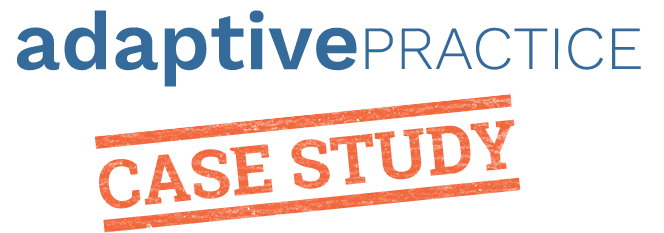
This case study was originally
published on EdSurge.
 Teacher Name: Beth Wycoff
Teacher Name: Beth Wycoff
School: ELC Middle School, Estherville, Iowa
Grade: 5-8 Intervention,
5th Grade Math Co-teacher
The Challenge:
I struggled watching students trying to memorize rules to work with fractions when it was obvious that so many had no idea what the fractions actually meant. Very few could show a simple fraction such as 1/3 using a model. Even fewer could explain WHY 1/3 is equivalent to 3/9. Performing the operations with fractions could only be done by students who could memorize the algorithms, but rarely would these students explain why the algorithm worked. We don't have the time in our curriculum to go back and start from scratch to develop that understanding.

Woot Math has given me a practical and efficient way to take students individually from concrete to abstract understanding of fraction concepts. Students are able to construct fractions and visualize the problems they are solving. My students are much more comfortable discussing fraction story problems as they feel more confident in describing the problem that they can now see in their heads.

The Solution:
I used Woot Math with all students in 5th-grade once a week for 25 minutes. I also used Woot Math with my 6th- and 7th-grade intervention pull-out students for ~1 hour a week. Woot Math works extremely well in each of these situations as every student can progress through the concepts at their own pace. The graphics are appealing to all of my students which is refreshing. My older students who struggle in math don't appreciate the elementary themes of other math programs we have tried. Woot Math’s short lessons keep students interested yet still give the opportunity to demonstrate mastery.
The Result:
Woot Math has given me a practical and efficient way to take students individually from concrete to abstract understanding of fraction concepts. Students are able to construct fractions and visualize the problems they are solving. My students are much more comfortable discussing fraction story problems as they feel more confident in describing the problem that they can now see in their heads.
Honestly, I am most surprised at the reaction my "non-achievers" have to Woot Math. They might move more slowly through the books, but they are just as proud of their progress. That said, I rarely have to remind any student to be on task on Woot Math days. Most students race into the room to get started. Hands are flying in the air, kids are "wooting”, and I am excitedly running from student to student praising their efforts and their success. I have students record their progress on a record sheet they can easily show to their parents or other teachers. I give a signature each time they get three stars on a chapter.
Another facet of Woot Math that I so appreciate is that kids are able to move at their own pace. Slower students are never compared to faster students as each student is praised for progress in understanding, not for speed. Students for whom learning comes more easily are thrilled at the opportunity to fly ahead. Either way, I don't have to worry about creating lessons that are accessible to all. Woot Math does that for me.
I am most grateful for the opportunity to be able to interact with kids who struggle in math in a way that makes them see math can be a good experience! Implementing Woot Math has been great for both the kids and myself.
Every student is accountable in Woot Math. I can monitor student activity through the reports on the teacher dashboard reports, and I can provide extra encouragement when needed without the student feeling like he or she is behind. My motto is that slow progress is better than no progress! No child is left behind even if he or she doesn't move as quickly as classmates.
How has Woot Math impacted your students' learning?
Woot Math is appealing to students because it is hands-on and interactive. Students are DOING the math, not just watching a teacher or a video present a lesson. Students develop perseverance as they work to achieve three stars in each lesson. They have become comfortable with going back to do a lesson over because not being successful the first time isn't associated with shame or negative consequences.
All students working in Woot Math find it to be engaging and challenging, but not frustrating. I have witnessed many "aha" moments as students truly understand hard concepts for themselves, "Wait a minute! Hey! If the denominator is smaller, the fraction is bigger! I never knew that!"
I have seen a carry-over effect from Woot Math to the classroom. More kids are performing the algorithms for the operations successfully. I attribute this to the fact that the algorithm isn't just a memorized rule to them any longer. They understand that when they add fractions the pieces must be the same size. They know that means they have to find equivalent fractions first. They can see the fractions as they work and use those mental pictures to better explain what they are doing.
I have yet to have a student notice the progression from concrete to abstract. The concepts are presented to them in such a way that they naturally progress to independence from manipulatives without realizing that it even happened. Woot Math also helped my students become more flexible using different manipulatives. They can go from bars to circles to parts of a group and still apply the same fractional concepts.
